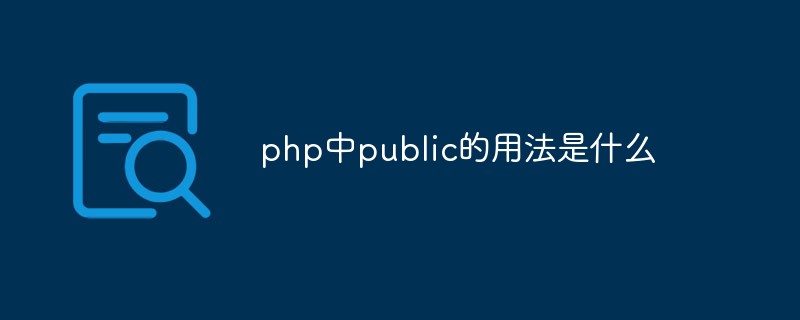Home >Backend Development >PHP Problem >What is the usage of public in php
What is the usage of public in php
- WBOYWBOYWBOYWBOYWBOYWBOYWBOYWBOYWBOYWBOYWBOYWBOYWBOriginal
- 2022-02-22 14:04:116119browse
In PHP, public is an access modifier, used to limit the accessibility of modified members. It means "public", that is, it can be accessed in all locations. The syntax is "class Class name {public property or method definition}".

The operating environment of this article: Windows 10 system, PHP version 7.1, Dell G3 computer.
What is the usage of public in php
Access control modifiers
形式:
class 类名{
访问控制修饰符 属性或方法定义;
}There are 3 access modifiers:
- ##public Public: accessible (used) everywhere.
- protected Protected: can only be accessed (used) within the class and in subclasses or parent classes of the class.
- private: can only be accessed (used) within the class.

PHP Video Tutorial"
The above is the detailed content of What is the usage of public in php. For more information, please follow other related articles on the PHP Chinese website!
Statement:
The content of this article is voluntarily contributed by netizens, and the copyright belongs to the original author. This site does not assume corresponding legal responsibility. If you find any content suspected of plagiarism or infringement, please contact admin@php.cn
Previous article:How to get the current time in phpNext article:How to get the current time in php

